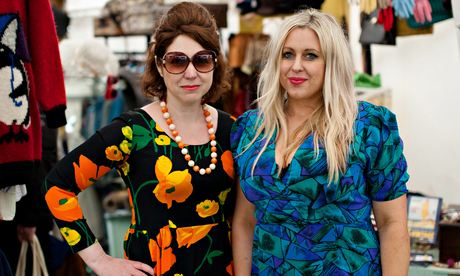
'What I love about this," said Simon, 39, at the Hay Festival of Literature and the Arts for the third time, "is that it hits every sense."
"Yes," said Joanne, 44, his girlfriend. "I'm feeling wet, and I'm also hearing and seeing a lot of rain."
The Hay crowd is what it always is – apart from a huge number of kids, here because there's a schools programme. "Even though our eyebrows were up here at the amount of schoolchildren there were, I had half a lager and it was all right," Joanne added.
What I mean is, there are quite a lot of different strains of intellectual, which is easy to forget, because they don't often congregate in the same place. There are the sustainability/social justice lot, segueing into the personal development/self-examination lot, and every year you notice more of the programme devoted to greenness, more and more stalls taken by renewable energy people.
Oriel Price, 39, was there to gather support for tidal lagoon power in Swansea, a giant renewable energy project that could conceivably provide 11% of Wales's domestic power. It feels like a trade show in an alternative universe where the past 30 years haven't happened, or happened in a different way. There's renewable energy, hand-whittled breadboards that are actually pretty expensive, cheese, and vintage clothes – Jo Hodges and Kelli Warr are, between them, the clothes version of Richard Booth, the man whose passion for secondhand stuff turned Hay into the town of books in the first place, in the 1970s.
Back to the greenies for a second: last night, Simon and Joanne went to see Tim Benton and Christine Tacon. Benton is a food security campaigner, Tacon is the groceries code adjudicator, whatever that might mean. "The observation was made," Simon reports, "that the audience was mainly middle class, whereas the real pressures of food scarcity and climate change are more relevant to those who are less resourced. I want to harness what I can of these conversations, and think about how it can be fed into public health policy." (He works for a local authority.) I'm afraid I can't, without remark, allow "less resourced" to pass into the vernacular as a better phrase than "poor".
But this encapsulates why a person would go to Hay, where the stunning natural surroundings are always engulfed in cloud and your immediate concern is always to avoid trench foot. It is a public place where a conversation about climate change can happen without all the usual impediments of having to listen in equal part to some idiot who doesn't believe in it. Even now that the festival is sponsored by the BBC, the pretend he-said/she-said balance hasn't penetrated the discourse; experts are still experts in Hay.
Then there are the historians, who, in a piece of entirely unscientific sampling, I would divide into "obsessed with the first world war" and "in love with Alison Weir". A significant number of people had come just for Weir, including Sarah Crabtree and Emma Papworth, junior doctors of 25 and 26 who came from Birmingham on their one day off in the midst of comically long shifts. "What can we say?" said Crabtree archly. "We're just so cultured."
The roads that led to the first world war are, shall we say, well-travelled: by Jonathan Boff and Mervyn King, by David Owen and David Reynolds. Well, it is the centenary, I suppose; it would be rude not to mention it.
There are brilliant pairings, such as Damian Barr and Charles Moore, with their very different takes on Margaret Thatcher. And there is quite a lot of food, its celebrities (Antonio Carluccio, Mary Berry), its thinkers (Helena Attlee), its heroines (Diana Henry), and people who just really like it. I heard one grumble about the programme – that it didn't change enough from one year to the next, but the grumbler was too polite to be named and I suspect was not truly wedded to the complaint.
I thought what I quite often think when I'm listening to Any Questions and half the audience thinks all our problems are down to the feckless poor while the other half thinks it's all down to the immoral rich: all these people would think of themselves, rightly, as quintessentially middle class, but they're all quite different. They really only converge on gardening.
Elaine Harper is the head of English at Lady Hawkins school, and was there with her 11- to 13-year-olds – "Though I'm looking round now, wondering where they've all gone."
She's been going to Hay for 25 years, thinks it's a little less local, a bit less friendly. "But it's hugely better for the wider community. It's put Hay on the map, and by extension, all of Herefordshire."
She remembers seeing Seamus Heaney, a few years ago. "His death was just the saddest thing. So to have seen him while I still could, I just realised how lucky I was." You can't overestimate the star power of a poet, which is how the whole thing began.

